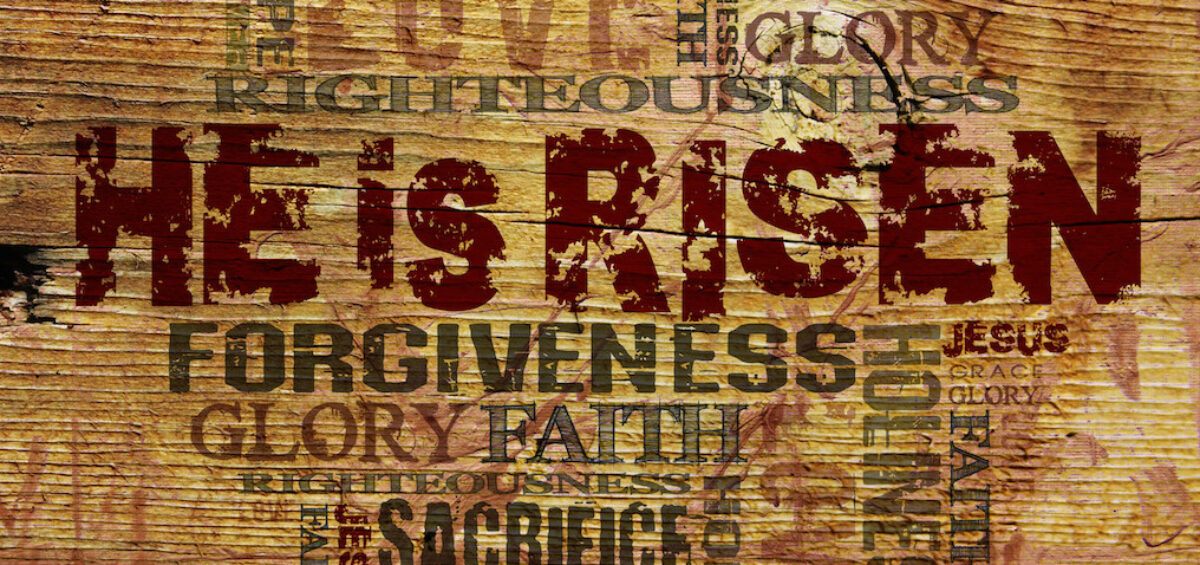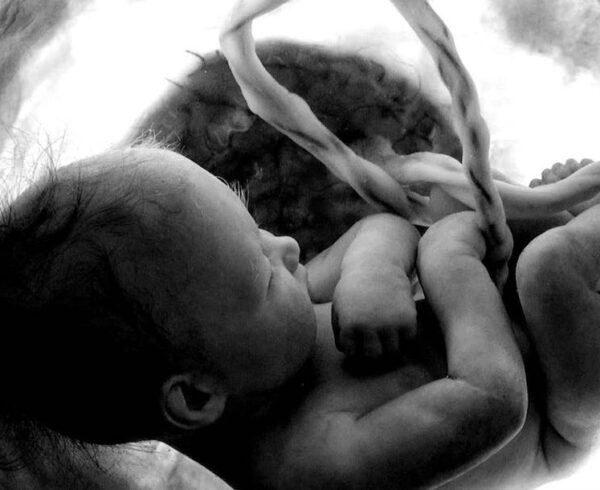“Don’t you want to go to heaven?”
This question came from the audience during a short devotion I presented several years ago on the topic of why we become and remain Christians. I stated the purpose of the Christian life was not primarily for us to go to heaven but to live in accordance with the following credo: If we live, we live for the Lord; if we die, we die for the Lord because we must serve God in all circumstances without focusing on a reward for our service. The questioner, a retired United Methodist Minister with a profoundly fundamentalist approach to Christianity, could not accept my premise that the primary goal of Christians is not to claim heaven as our reward for following Christ but that our reward is following Christ.
This Easter season and the retelling of the old but always new story–the message of love, grace, hope, and reconciliation between God and humans through Christ–stimulated me to think again about why we choose to be Christians and attempt to live in imitation of Christ.
A Persistent Question
We Christians are strange creatures. Not only do we believe in God, we also profess Christ as Son of God. Even more extraordinary, we maintain Christ’s sacrificial life and death illustrate his great love for us and for God. Our fundamental beliefs and choices make no sense to non-Christians. Importantly, we Christians rely upon St. Paul’s teaching that what appears to be folly or irrational to nonbelievers represents wisdom and rationality for Christians. Once we believe, we know; and the Gospel then gives meaning to our reality and to our lives.
Our belief in God and our decision to live in compliance with the Gospel require both deep faith and the highest level of intellectual commitment. Yet, the question persists, why do we choose to believe?
The Easter Story
For many Christians, the Easter story describing Christ’s resurrection and his promise of paradise to the thief provide powerful and, perhaps, sufficient reasons to believe. The imagery in the Book of Revelation can be interpreted as a wonderful description of heaven or paradise for those people who hold fast to belief in Christ as Lord and Savior. Regardless of the exact description of heaven, we want to be eternally in the presence of God. This perspective suggests a reward factor: We believe; therefore, we go to heaven after our deaths in return for our belief. Conversely, if we don’t believe, we go somewhere markedly less desirable.
The Easter story assures us of deeper truths. The resurrection testifies to the Lordship of Christ, announces his triumph over evil and death, and proclaims who controls reality, both seen and unseen. Through the resurrection, we encounter the power of God’s love, and the force of Christ’s love for God and for us. Love, not the expectation of heaven, establishes the foundation for our belief in the words of the old victory hymn: He loved me ere I knew him and all my love is due him. We should believe in response to this divine love, not as the result of a bargain with heaven as the reward.
The Resurrection Promise
Christians exist in a covenantal relationship with God, who defines the covenant and its terms. God establishes the promises he makes and those we must make in return. The covenant does not reflect a contract between equal partners: We can accept or refuse the terms; we cannot change them or bargain with God.
Easter extends the Old Testament covenants. The resurrection testifies to God’s magnificent promise embedded in the extended covenant forged through Christ’s sacrificial life and death: We can never be separated from the love of God in Jesus Christ. This love sustains us in life, death, and the life to come.
The resurrection reminds us that we believe in response to divine love and fulfillment of the covenant promise, not for the reward of heaven. That is, if we believe primarily as a result of our desire for the reward of heaven, we bargain with God in violation of the covenant. In effect, we’re saying we’ll believe if we can go to heaven and we won’t believe if we can’t go to heaven. This idea, which many Christians seem to accept, gives an inappropriate focus to our faith journeys because our acceptance of the covenant must be opened ended without reservations or bargains.
Our Final Destination
Bishop N.T. Wright, in his seminal book—Surprised By Hope, suggests heaven may not be the final destination for believers. His extensive scholarship leads him to believe heaven functions as “God’s Control Room” where believers go after death to await the final Resurrection. Bishop Wright’s view, based upon a careful reading of Revelation 21:1-4, is that the Final Resurrection for Christ and his believers will take place on this earth because heaven is only a temporary way station for us after death:
Then I saw a new heaven and a new earth, for the first heaven and the first earth had passed away, and the sea was no more. And I saw the holy city, new Jerusalem, coming down out of heaven from God, prepared as a bride adorned for her husband. And I heard a loud voice from the throne saying, ‘Behold, the dwelling place of God is with man. He will dwell with them, and they will be his people, and God himself will be with them as their God. He will wipe away every tear from their eyes, and death shall be no more, neither shall there be mourning, nor crying, nor pain anymore, for the former things have passed away.
If, in this instance, Revelation is more literal than symbolic, God and resurrected humans ultimately will dwell not in heaven but on earth—the New Jerusalem. I do not know if Bishop Wright is correct; however, I am extraordinarily curious about, and looking forward to, experiencing life after this life.
Yes!
Of course I answer with a resounding “Yes!” to the question, “Don’t you want to go to heaven?” In my better moments when I am under the influence of my better angels, this question and answer lack primary importance. I believe in God as Parent, Son, and Holy Spirit, and accept the covenant in response to divine love, not out of fear of hell or the reward of heaven.
Heaven awaits us, but Christ charged the Community of Believers to carry out the Great Commission in this world. On this Easter, let us reaffirm and celebrate the central mystery of our faith: Christ has died, Christ has risen, Christ will come again. We can again proclaim our trust in Christ’s unfailing grace by renewing our commitment to profess, witness, and serve Christ through our ministry in this world—our current reality. Heaven can wait.
If you enjoyed this blog post, please consider purchasing my novel, Comfort and Affliction on Amazon or Barnes & Noble.










